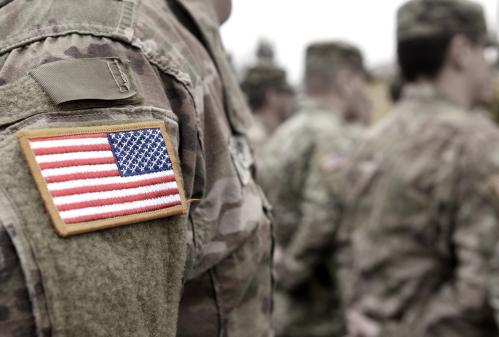The clarion call has been sounded many times before, but this time it appears even more true and urgent than usual: Iraq is in crisis with the possibility of a return to sectarian strife if not all-out civil war. And this crisis cannot wait until the holidays are over for high-level U.S. attention.
Reaching this conclusion does not require critiquing the Obama administration’s recent policies on Iraq, and most specifically its bringing home U.S. military units in Iraq. While the recent victory speeches were clearly a step too far, the policy was, if unfortunate at one level, also difficult to avoid at another.
The Iraqi parliament’s decision not to accord American forces immunity from prosecution under Iraqi law would have created a precedent that the United States, with its global responsibilities and operations, could not countenance. The administration might have been able to maneuver around the parliament’s position but it would have been very challenging. Moreover, recent dynamics in the region in general and Syria in particular may have, in ways hard to predict a few months ago, added to Prime Minister Maliki’s paranoia about possible coups or other forms of domestic unrest.
That said, we are where we are, and the situation is acute. Prime Minister Maliki appears to be pulling a page out of the Baathist playbook, strong-arming his political opponents into submission, resignation – or worse. The accusations against Vice President Tareq al-Hashemi and his ally Saleh al-Mutlaq that they were involved in assassination plots and the like against the prime minister are probably specious. In any event, the accusations should not have been engineered by a prime minister within a constitutional system like Iraq’s. Only independent courts should ever make such charges and demand the arrest of the accused.
With the connivance of a Supreme Court that he has manipulated and stacked, Maliki has taken it upon himself to go after these rivals, both of whom are Sunni, making the prospect of sectarian conflict very real. Reports that his next target may be the reputable Finance Minister, Rafi al-Issawi, another Sunni, only add further fuel to the fire.
With Hashemi escaping for the moment to quasi-sanctuary in Kurdistan, there is a moment of opportunity to defuse the crisis before anyone is hurt. But it is slipping away fast. The United States needs to consider any and all diplomatic tools it can creatively muster to address the problem. An emergency trip to Baghdad by Secretary of State Clinton and Vice President Biden is where the creative thinking should begin, not end.
They might ask someone from the previous administration like Steve Hadley, former national security advisor, to go along for added leverage and to convey the bipartisan resolve of the United States to stay engaged in Iraq and prevent it from collapsing, which would carry enormous potential consequences for the region and the world. Additional steps up to and including an emergency conference in a place like Istanbul that President Obama – perhaps joined by former President Bush or Secretary Rice – could convene is the kind of idea that should not be written off.
This is the moment to call in all the personal chips and connections we as a nation can muster, regardless of who gets blame or credit in the ultimate American domestic political calculus on the subject. The one thing no American leader or prospective leader can want or afford is a failed Iraq.
The reason for taking such dramatic measures is that it is hard, otherwise, to see how the crisis can be defused at a time when Maliki is not just politely arresting rivals but having his cronies point tanks at the rivals’ houses. The ability to put Humpty Dumpty back together through a face-saving device, like asking an international board of inquiry to investigate the charges against Hashemi, is probably gone. Only high-level political engagement now stands much of a chance. The telephone is not good enough right now.
A new deal would probably require Maliki to give up control of the ministries of defense and interior to reputable, neutral individuals outside his coalition – perhaps at least one to Kurdish leaders, who have the best ability at the moment to straddle the growing Sunni-Shia divide within Iraq. He would have to agree as well to stop abusing the constitution and issuing arrest warrants or firing other Iraqi leaders using the powers of the prime minister’s office. Other solutions may be possible too, and the best would be the departure of Maliki from the scene. But with that latter idea unlikely to go anywhere, a dilution of his power together with greater oversight from trusted Iraqis and international friends may be our only hope.
This issue, alas, cannot wait.
The Brookings Institution is committed to quality, independence, and impact.
We are supported by a diverse array of funders. In line with our values and policies, each Brookings publication represents the sole views of its author(s).



Commentary
Op-edIraq on the Brink
December 24, 2011